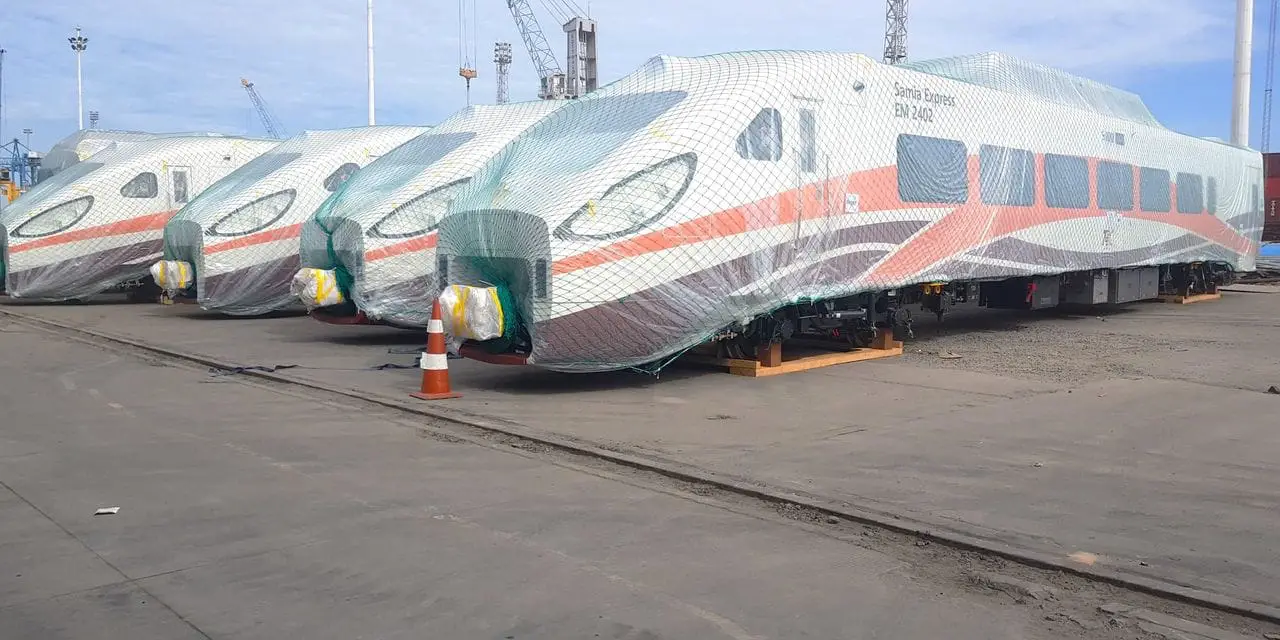Tanzania Modernizes Rail Transport with Electric Trains for SGR.
Tanzania is making significant strides in modernizing its transportation infrastructure with the procurement of additional electric trains for its Standard Gauge Railway (SGR).


Tanzania is making significant strides in modernizing its transportation infrastructure with the procurement of additional electric trains for its Standard Gauge Railway (SGR).
This move is part of the country's ambitious plan to enhance its rail network, improve efficiency, and reduce transportation costs.
A Leap Towards Modernization
The acquisition of more electric trains is a pivotal step in the ongoing development of Tanzania's SGR, which aims to replace the old meter-gauge railway.
Modern electric trains offer numerous advantages, including faster travel times, increased passenger capacity, and reduced environmental impact compared to diesel-powered trains.
Promoting Electric Vehicles (EVs)
In addition to modernizing its rail transport, Tanzania is also focusing on the adoption of electric vehicles (EVs) to reduce reliance on fossil fuels and curb urban air pollution.
Key initiatives include:
- Policy and Incentives: The government is formulating policies to encourage the import and use of EVs. This includes tax incentives, subsidies, and the creation of favorable regulatory frameworks to promote the adoption of EVs.
- Charging Infrastructure: Developing an extensive network of EV charging stations is critical to supporting the growth of electric vehicles. Tanzania is partnering with private companies and international organizations to build and expand charging infrastructure across urban and rural areas.
- Public Awareness and Education: Raising awareness about the benefits of EVs is essential for their acceptance. The government, along with environmental organizations, is conducting campaigns to educate the public about the environmental and economic advantages of switching to electric vehicles.
Benefits of Electric Trains
- Efficiency and Speed: Electric trains are capable of higher speeds and quicker acceleration, significantly reducing travel time between major cities and economic hubs.
- Environmental Impact: These trains produce fewer emissions, contributing to Tanzania's efforts to combat climate change and promote sustainable development.
- Operational Costs: Electric trains typically have lower operating costs in terms of fuel and maintenance, providing long-term economic benefits.
Infrastructure Development
The successful integration of electric trains requires substantial investment in infrastructure.
Tanzania is concurrently upgrading its rail tracks, electrifying routes, and enhancing station facilities to support the new trains.
These efforts are expected to improve overall service quality and reliability, making rail transport a more attractive option for passengers and freight.
Economic and Social Impact
The modernization of the SGR with electric trains is poised to have a transformative impact on Tanzania's economy.
It will facilitate smoother and faster movement of goods and people, thus boosting trade and tourism.
Improved rail connectivity is also expected to spur regional development, create job opportunities, and enhance the quality of life for many Tanzanians.
Challenges and Future Prospects
While Tanzania is making significant progress, there are challenges to overcome, such as the high initial cost of EVs, the need for robust infrastructure, and the requirement for skilled personnel to maintain advanced technologies.
However, with continued investment and strategic planning, Tanzania is poised to become a leader in sustainable transportation in East Africa.
Looking Ahead
Tanzania's commitment to expanding its fleet of electric trains underscores its dedication to building a modern, efficient, and sustainable transportation system.
As the SGR continues to evolve, it promises to play a crucial role in the country's economic growth and development, setting a benchmark for rail transport in East Africa.




